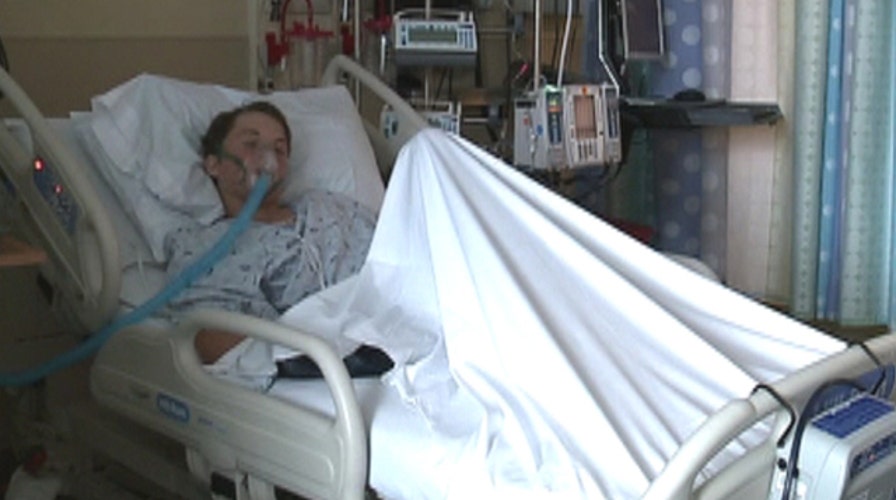Children's hospitals report spike in respiratory illnesses
Dr. Marc Siegel on symptoms, treatment
The Centers for Disease Control and Prevention (CDC) has confirmed clusters of a serious respiratory illness that is responsible for sending children in Missouri and Illinois to the hospital. During a press briefing Thursday, officials said the virus, called enterovirus D68, has sickened at least 19 children in Kansas City, Mo., and 11 in Chicago.
"Clinicians throughout the country need to be on the alert for increases in severe respiratory illness and consider this in the differential diagnosis. Geography isn't that helpful when it comes to respiratory viruses. We know that flu transits the entire country pretty quickly,” said Dr. Anne Schuchat, director of the CDC National Center for Immunization and Respiratory Diseases.
While initial reports indicated there were several hundred children hospitalized in the Midwest, officials said they are still testing samples from several other states to confirm whether or not those cases are related to the rare virus.
Confirmed cases were found in 19 out of 22 samples from Kansas City and 11 out of 14 samples from Chicago in children ranging in age from 16 weeks to 16 years old. No cases have been confirmed in adults at this point, and all the children confirmed had a medical history of asthma and wheezing.
“The situation is evolving quickly,” Schuchat said.
According to the CDC, it is too soon to tell whether the virus will continue spreading to other states, but added that she would not be surprised if more potential clusters are reported. While enterovirus itself is not uncommon, Schuchat told reporters that there is still a lot unknown about the D68 strain.
There are more than 100 different types of the enterovirus and about 15 million people get infected every year.
"Most infected people have no symptoms or only mild symptoms but some infections with the different enterorviruses can be serious,” Schuachat said. ”Infants, children and teenagers are most likely to get infected with enterovirus and become sick.”
Enteroviruses are linked to many symptoms, which include rashes and even neurological illnesses. However, the CDC says the clusters, thus far, have been limited to upper respiratory illness. Just like cold or flu, the illness will run its course in about a week. Parents should start to be alarmed and seek medical help if cold symptoms start to involve wheezing or difficulty breathing.
There is no vaccine and, because it is a virus, there is no cure. Doctors recommend taking basic sanitary precautions, including washing hands often with soap and water, avoiding sharing items with sick people, and disinfecting frequently touched surfaces.
Michael Tobin contributed to this report.

